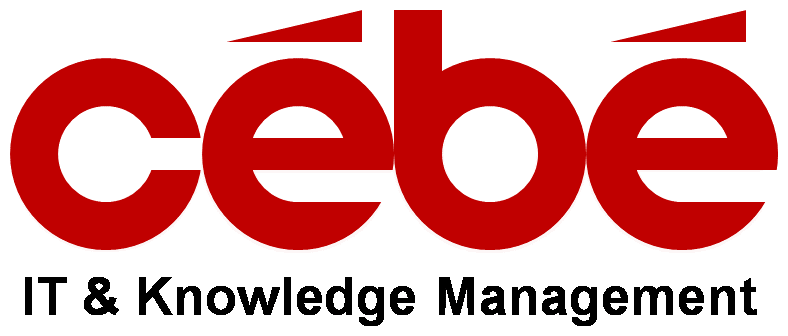
Consulting Services
- IT Strategy
- EA / SOA / BPM
- IT Innovation Briefings
- IT Due Diligence
- Vendor Selection
- Executive IT Seminars
- Cloud Computing
- Grid Computing
- Security Maturity
- Knowledge Strategy
- Technical Communities
- Knowledge Capture
- Enterprise Social Networking
Contact Us:
|
 |
|
|
Forward this newsletter to colleagues and friends: use the "forward email" link below at left, rather than "Forward" in your email software, to preserve your privacy, give the recipient more options (their own unsubscribe link, etc.) and to give us better click-through data from ConstantContact. Thanks!
|
|
|
 |
Reader Feedback, Squared
|
Peter Coles (
Hunch) commented on the comment in Issue No. 10 about Hans Rosling's Gapminder stastistics visualization software. Dr. Rosling gave a fascinating
TED talk in 2006, using Gapminder to explore worldwide health and wealth data from publicly funded organizations. This could be titled "data wants to be free." In a business context, it is amazing to think how exciting and useful business intelligence (BI) could be if it was based on such a tool.
|
 |
Long Beach Will Be Cloudy in December
|
The next meeting of the Object Management Group (OMG), in Long Beach, Calif., includes a
Cloud Computing Symposium (Dec. 8-10). During these three days, speakers and participants will explore the connections between Cloud Computing, BPM, SOA, "Business Ecology" (see the KIT No. 10), Enterprise Architecture, and Mobility.
|
 |
Debunking Cloud Computing Myths
|
Mike Kavis (@madgreek85 on Twitter) wrote a blog entry entitled "
Cloud Computing: Expert opinions everywhere, but where are the experts?" In it, he takes issues with myths related to security in the cloud; the outcry when a cloud-hosted application fails, even though on-premise applications fail too, just less visibly; and the "rule" against placing mission-critical application in the cloud. He concludes that most "experts" speak in generalities, and business cases need to be looked at individually.
|
 |
Record and Post Webcam Interviews
|
Wetoku, a Korean startup, has lauched the public beta phase of its offering, so you and I can use it. Actually, you and I can use it together, that's the point: Wetoku lets you record a webcam conversation and post the resulting video, with the two webcam images side by side, on your blog (it may only work with WordPress, at least for now).
|
 |
The Heisenberg Principle of ROI
|
|
I've again encountered a business value argument that goes like this: employees using a certain new capability say that they save 12 seconds on average during each search, so the company saves $4.6 million a year. I have a big problem with this argument. If each employee manages to go home two minutes earlier each day, will the large company in question be able to identify 25 positions they can cut? I don't think so!
In fact, they are very likely to spend the same amount of time,
or even more, if better search results give them more relevant materials to use. But then, if their product or service is better and makes more money in 2011, will they be able to trace that back to the new capability that improved search results? Unlikely!
This may be the consulting equivalent of Heisenberg's principle of uncertainty: you cannot measure
both the position and speed of a particle with accuracy. If you get a precise ROI number, it's likely to be bogus, and if you get a real benefit, it's likely to be fuzzy. People should stop making up numbers just because their clients want them.
|
 |
We'll Be Back After the Commercials...
|
"Alpha, Beta, Meta... a New Product Introduction Cycle?" is the latest post by Claude Baudoin on the Cutter consultants' blog. It came from observing that while Google Wave is still in limited release, its beta users are already taking over the definition and marketing of the product by participating in waves about Wave itself, or meta-waves (hence the post's title).
|
 |
Social Search
|
Aardvark is an experiment in social search: instead of asking a system to search through Web pages or documents, you ask the community, and an automated broker routes the search to people whose profile suggests that they may have an answer. The novelty of Aardvark is that you interact with it via instant messaging. So it pops up like a chatty friend (but you can define the frequency) and tells you, "Jane in Sacramento is asking: ..." and you reply in IM. You can pass, refer the question to someone else, etc.
One interesting social aspect is whether people will give honest answers, or admit it when they don't know. If you get ten replies, you can sort the wheat from the chaff, but if you receive just one, how do you know that you can trust it? Another question is whether we really need one more stream of interruptions...
|
 |
Seen Recently... |
"The problem with achieving web reliability is that engineers measure it in uptime... while end users measure it in downtime.
"
-- Brenda Michelson, Elemental Links (via Twitter)
|
|
| |
|